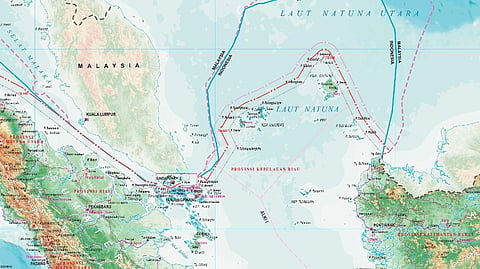Indonesia plans quick-to-build oil refineries for US crude, doubts persist
Indonesia plans to build a network of small modular refineries to process US and domestic oil, aiming to reduce gasoline imports, but analysts warn the switch in strategy from large-scale refining facilities could prove uneconomical.
The prefabricated refinery units, which can be constructed faster and more cheaply than traditional plants, will help Asia's largest importer of gasoline meet domestic demand and its commitment to increase US imports.
Indonesia's focus on small refineries runs counter to the global trend of ever-larger crude processing facilities that maximise economies of scale, analysts say.
Reuters reported last month that Indonesian sovereign wealth fund Danantara planned to sign an $8 billion contract with US engineering firm KBR for 17 modular refineries, citing sources and an official economic ministry presentation.
Danantara has not commented directly on the deal and KBR did not respond to Reuters requests for comment.
Indonesian officials confirmed the refinery plan, which was agreed as part of Indonesia's deal with Washington that includes a pledge to buy $15 billion worth of US energy products for reduced tariffs on Indonesian goods.
"We will import crude oil into Indonesia and that will require refineries that match the characteristics of US crude, so we invest accordingly," Danantara CEO Rosan Roeslani told reporters at a conference last month, adding that details were still being discussed.
Deputy Energy Minister Yuliot Tanjung said there were plans to locate the refineries close to oil production sites.
Initial studies for modular infrastructure and oil storage facilities have been conducted in Natuna, Surabaya, North Halmahera and Fakfak, among others. The planned projects were among those proposed to Danantara for funding, Yuliot said.
Indonesia's total oil and gas imports stood at $36.28 billion in 2024, official data showed.
Feasibility concerns
Analysts have expressed caution over the feasibility of the strategy, citing Indonesia's historical challenges in expanding its refining capacity.
Indonesia's Pertamina has plans to invest $48 billion to upgrade six refineries and construct a large refining and petrochemical complex to double the state-owned firm's oil products output to 1.5 million barrels per day (bpd).
Pertamina initially partnered with major global companies for the projects, but most of the partnerships were cancelled for various reasons, including disagreement over the value of projects, forcing Pertamina to conduct most of the expansion alone. Indonesia has not built a major refinery in 30 years.
Pertamina's existing six refineries have a combined capacity of 1.06 million bpd, meeting around 60 per cent of domestic fuel demand.
In 2022, Pertamina completed a first-phase upgrade at the Balongan refinery to increase capacity by 25,000 bpd, but the $7.4 billion upgrade of the Balikpapan refinery under the Refinery Development Master Plan (RDMP) is yet to be completed.
A partnership with Rosneft to build a 300,000-bpd refinery and petrochemical complex in Tuban has faced delays due to sanctions on Russia over its war with Ukraine.
"Building the 17 refineries seems quite ambitious considering that RDMP plans are also under way," said Pankaj Srivastava, senior vice president at Rystad Energy.
Simple refineries can be completed in less than half the time of larger complexes and cost less, providing a "quick fix" and easing Indonesia's reliance on refined oil imports, but will not help the country achieve its goal to expand its petrochemical capacity, he said.
Small refineries, typically with capacities of 50,000 bpd to 150,000 bpd, are generally simpler units without upgrading facilities, limiting economies of scale, said Adi Imsirovic, director at Surrey Clean Energy.
Additionally, these projects - with a smaller feedstock requirement and terminal restrictions - will likely require the use of smaller vessels to import crude, raising costs significantly, said Sparta Commodities' senior analyst June Goh.
She also warned that the arbitrage may not always be economical for US West Texas Intermediate crude.
"If there is no crude flexibility in-built into the modular refinery projects, then Indonesia will be very exposed to the prices of US crude delivered into the country," she said.
(Reporting by Fransiska Nangoy in Jakarta and Jeslyn Lerh in Singapore; Additional reporting by Stefanno Sulaiman in Jakarta; Editing by Florence Tan, Tony Munroe and Jacqueline Wong)


